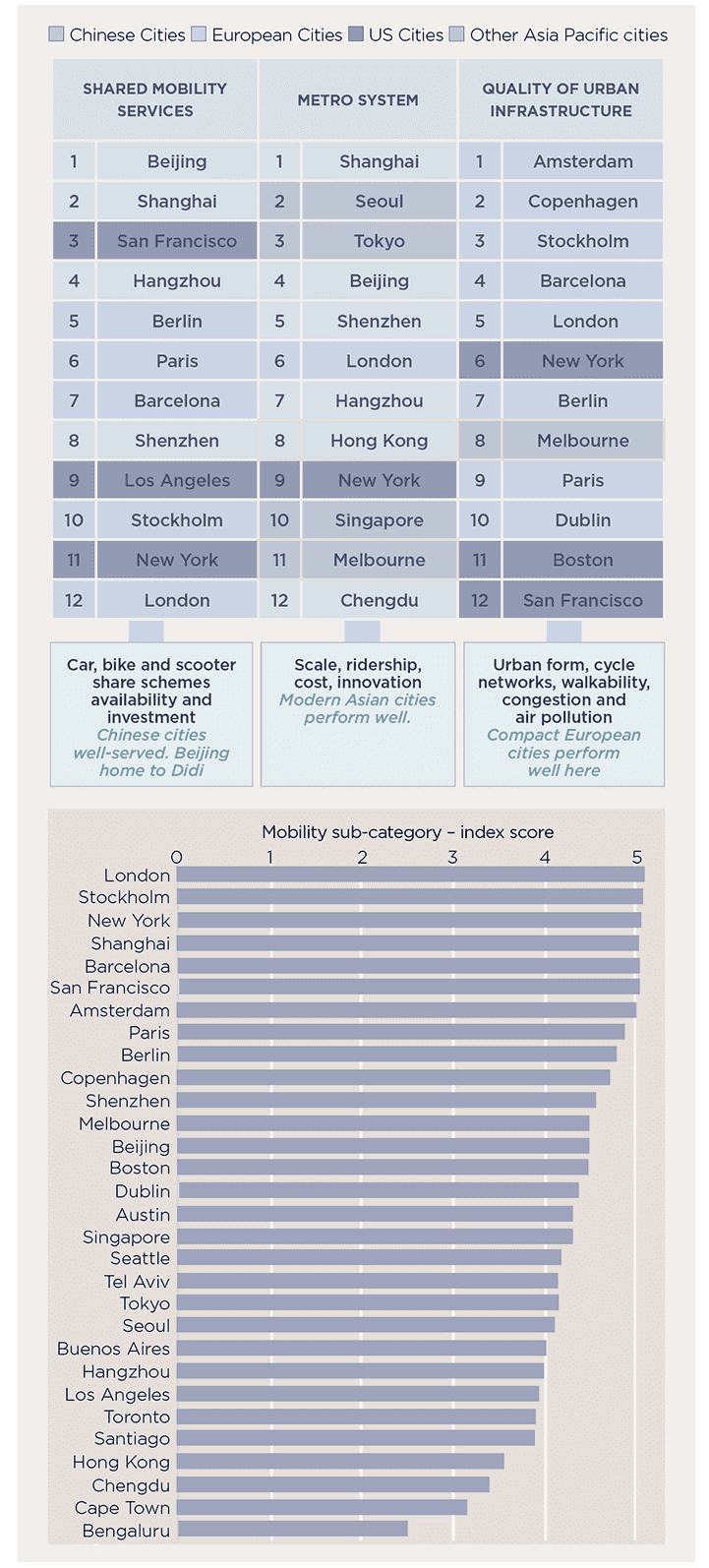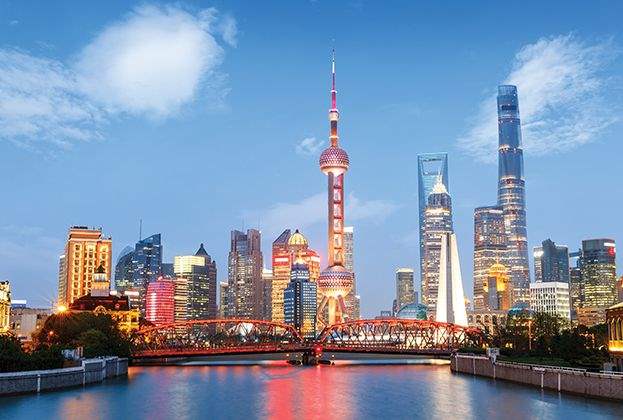The ease a city’s population can get from A to B is an important consideration
Our Tech Cities are among the fastest growing developed cities in the world. Across the 30 tech cities, GDP is forecast to rise by 36% in the next decade, against a rate of 19% across other developed centres. Measured by metro area, these 30 cities are home to 291 million people between them, and will add another 18 million inhabitants in the next 10 years.
Rising populations are putting ever greater pressure on existing infrastructure, posing a risk to city competitiveness. From mobility as a service to investment in ridesharing and autonomous vehicles, our Tech Cities are at the forefront of addressing this. Many of these cities benefit from an urban form that is conducive to cycling and walking, making sustainable modes of transport popular too.
We consider three elements when assessing mobility: the availability, density and investment in shared mobility services (car, bike and scooter sharing services), the scale and level of innovation in the city’s metro system, and the quality of urban infrastructure (walkability, cycle networks, congestion and air pollution).

Figure 2 | The mobility sub rankings
Source: Savills World Research
Chinese cities have emerged as leaders in shared mobility services. Many of the dockless bikeshare schemes now found in cities across the world (such as Mobike) originated in China. Hangzhou is home to more shared bikes than in any other city globally. Numbers here topped 800,000, before they had to be culled to manage congestion.
Major Asian cities lead when it comes to metro systems. The large, modern systems benefit from onboard wifi and air conditioning and are among the cheapest to travel on.
The final pillar, urban infrastructure, looks at the quality of the urban environment. European cities compare favourably. Amsterdam, Copenhagen, Stockholm and Barcelona are among the world’s most cycle-friendly. Their compact size allows residents shorter commutes, easier access to amenities and a better work/life balance.
While not leading in any single category, taken together, London ranks first overall for mobility. The city’s public transport system offers smart ticketing (mobile, contactless, Oyster), integrated across all transport modes (from rail to bus). Existing congestion charging and a low emissions zone will be complemented with an ultra-low emissions zone this year. Pollution remains a major issue, however, while upgrading the world’s oldest metro system poses ongoing challenges.
.jpg)
.jpg)

